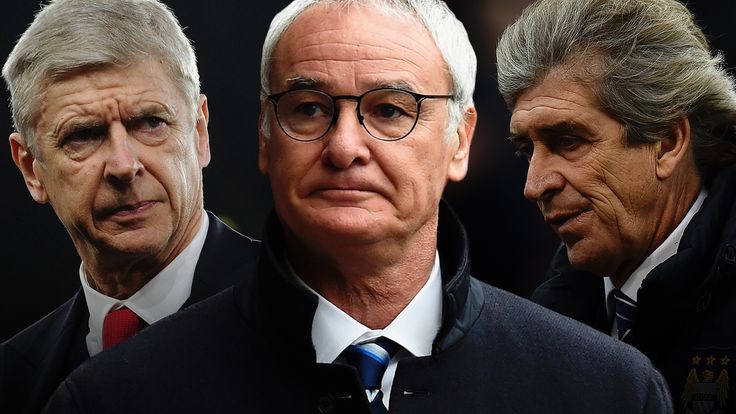
Tuesday 1 March 2016 11:43, UK
Leicester may be an inspiration but could coaches end up cursing the standards they set? Adam Bate looks at why Claudio Ranieri's success could make others uncomfortable…
When Garry Monk sat on the Goals on Sunday sofa recently, there was absolutely no reason to doubt his sincerity in commenting that Leicester had been great for the Premier League.
But the fact that the ex-Swansea boss was then expected to defend his record at the Welsh club - he was sacked in December with the club 15th in the table - provided an unfortunate counterpoint. It's easy to see why Leicester's success might not reflect well on everyone.
For the most part, Ranieri's improbable tilt at the Premier League title has been presented as an underdog tale to shame the elite. Why are Chelsea 20 points behind them? How can Louis van Gaal justify big-spending Manchester United being so far adrift?
Arsene Wenger's Arsenal are still in the title race but even he appeared annoyed that the story of Leicester's success should be styled in such a way. "Leicester is a fantastic example that football is not only about just spending the money," he argued.
"You reproach me about not buying big names, but you will support the team who has no big names." Wenger has his own reasons for advancing this argument, of course, but there is a valid point there too.
If Leicester really have shown that money isn't everything, then surely their remarkable run of results should not be used as a stick with which to beat those teams around them in the table. Instead, it's those further down the league whose work should come under scrutiny.
The accepted wisdom in regard to the Premier League is that the ambitions for clubs with smaller budgets should be kept in check. Supporters are told not to dream of the top four because they don't have the funds to compete. It's an exercise in tempering expectations.
When Alan Pardew walked away from Newcastle, he later explained that the fans felt the club was under-achieving in ninth place, while he was convinced that they were over-achieving. In taking Crystal Palace to mid-table he's enjoyed praise for a job well done.
West Brom's Tony Pulis has justified his pragmatic approach - stringing centre-backs across the back-line and playing functional football - because of a perceived ceiling to the team's potential. Albion's attendances have fallen but the bottom line is survival and Pulis delivers.
But Leicester challenge this idea. The days when clubs could come from nowhere to be champions of England might belong to the present as well as the past. In short, if Leicester can do it then surely anyone can hope to do it too? It's an exciting thought.
But is it repeatable? The reality is that it might not be. Perhaps it's a one-off. This season could be an anomaly. The problem is that nobody - and that includes supporters, media and club chairmen - likes anomalies. Ironically, Ranieri himself knows this as well as anyone.
The Italian has long been downplaying Leicester's chances in public. Indeed, he was still using the word "safe" at the weekend and it's interesting to note that he's identified the target of finishing between sixth and tenth as being a reasonable one for next season.
Would a top-ten finish be styled as success for prospective Premier League champions? There will be those already wondering whether Ranieri will eventually become a victim of his own success. Such has been Leicester's, there may well be many other such victims too.